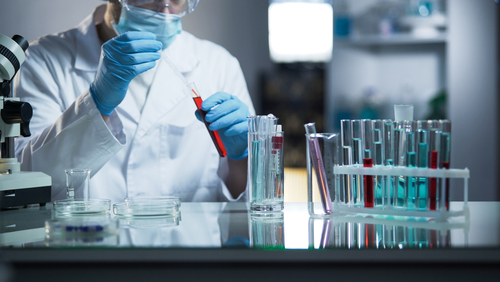Using extracts from plants in oral capsule formulations could lead to enzyme therapies that resist the acidic environment of the stomach and effectively treat phenylketonuria (PKU), an early study suggests.
The research was published in an article, “Study of the Potential of the Capsule Shell Based on Natural Polysaccharides in Targeted Delivery of the L-Phenylalanine Ammonia-Lyase Enzyme Preparation,” in the journal Pharmaceuticals.
PKU is caused by a deficiency in an enzyme called phenylalanine hydroxylase, which is needed to break down the amino acid phenylalanine. Such deficiency ultimately leads to a toxic buildup of phenylalanine in the brain and other organs. (Amino acids are the building blocks of proteins).
One therapeutic strategy for PKU involves the use of L-phenylalanine ammonia-lyase (PAL), an enzyme that can convert phenylalanine into another amino acid, tyrosine, to be safely processed in the body.
Using PAL therapeutically would require ways to safely and effectively get the enzyme into the body. Oral formulations such as pills and capsules are convenient and can be administered more safely than other methods (e.g., injections). However, before an oral PAL therapy can be absorbed into the body, the enzyme would need to pass through the acidic environment of the stomach.
“The most promising medicine here is L-phenylalanine ammonium-liasis (PAL). However, this enzyme is unstable, it quickly dissolves in the acidic environment of the stomach before having had time to produce a positive effect,” Olga Babich, the study’s first author from Immanuel Kant Baltic Federal University, in Russia, said in a press release.
As such, there is a need for capsule formulations that can safely transport the enzyme through the stomach before reaching the intestine.
Babich and her collaborators developed six capsule formulations for this purpose. All formulations utilized plant-derived complex sugar molecules (polysaccharides) — namely agar, carboxymethyl cellulose, and carrageenan — in combination with water to form the capsule.
According to the team, using natural sources prolongs the activity of therapies in the body. Also, the therapeutic enzyme is completely protected by the cell membranes of the capsules.
Then, the researchers measured how these formulations dissolved in water or in solutions meant to mimic the environment of the stomach. After six hours, the maximum capsule destruction was 46%.
Considering that prior studies determined that the proportion of capsule weight loss in the stomach should not exceed 47% and that acid-resistant hard capsules stayed in the stomach for 80 minutes, “we can assume that PAL in the developed capsule form will maintain its stability throughout the entire time spent in the acidic environment of the stomach,” the scientists wrote.
Notably, there is substantial variability in how quickly substances move through different individuals’ digestive tracts, and even in how different substances move through the digestive tract of the same individual. Whether pills are taken with food also substantially impacts how quickly contents move through the stomach.
“To confirm the proposed assumptions and the possibility of using the developed capsule shells in the manufacture of a phenylketonuria therapy drug, additional studies of the capsulated form of PAL in in vitro and in vivo systems are needed,” the researchers concluded.

